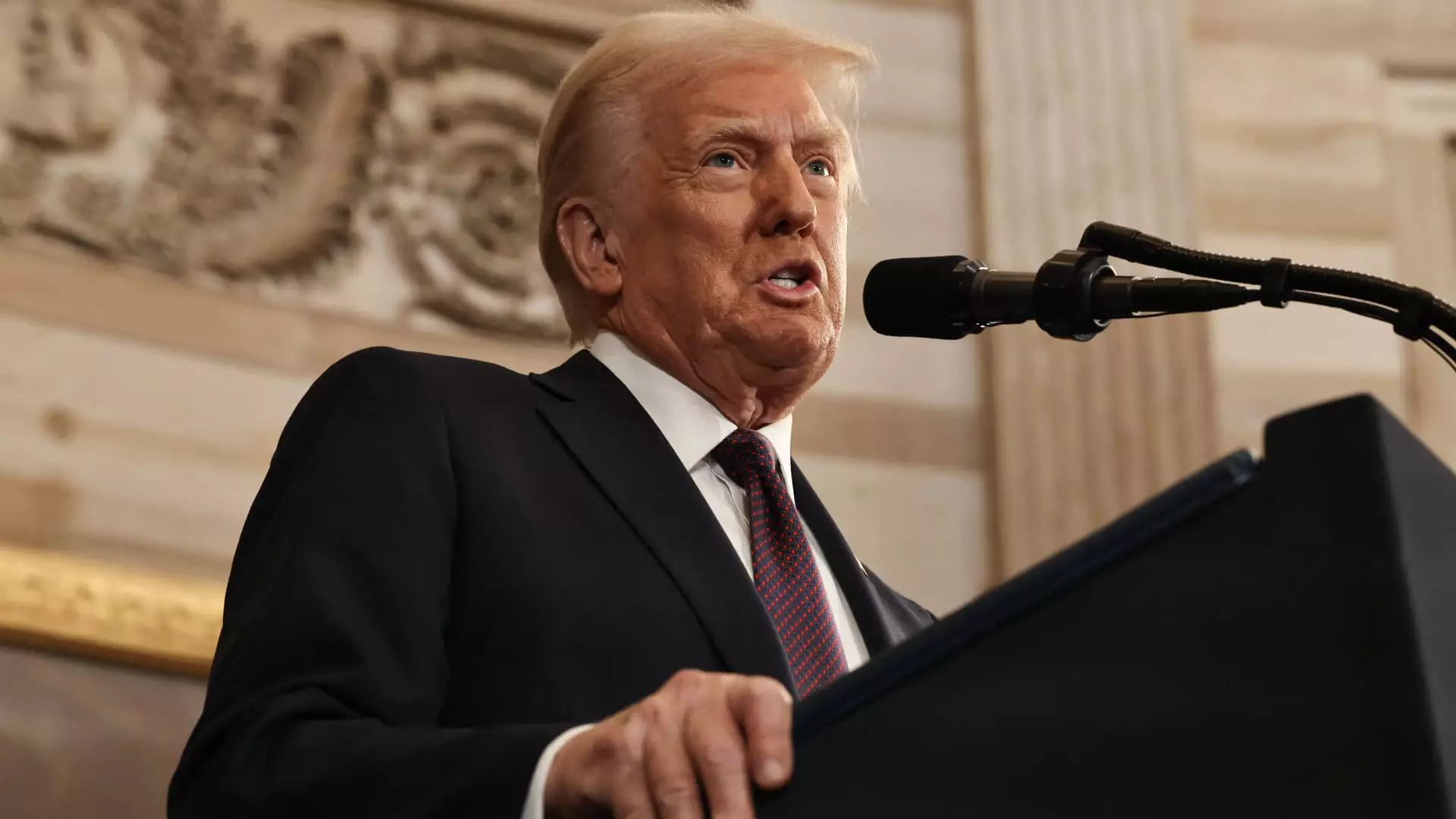Just five months ago, President Donald Trump stood poised to reshape his legacy as a peacemaker, a historical protector of American interests. He had convinced many that his administration would navigate the tumultuous waters of international relations with grace, steering clear of conflict. Yet, the recent military strikes on Iran, targeting crucial nuclear facilities, expose a jarring contradiction between rhetoric and action. This stark shift from promises of peace to aggressive military engagement not only jeopardizes Trump’s proclaimed goals but also raises alarm about the future of U.S. foreign policy.
This latest military operation—striking Fordo, Natanz, and Isfahan—marks a pivotal moment that directly attacks the essence of Trump’s message: to measure success not only through military triumphs but, more significantly, by the absence of war. Since his inauguration, Trump has claimed that the pinnacle of his achievement would be guiding the country towards peace. Instead, he now oversees a military operation reminiscent of a bygone era, challenging the feasibility of his long-term strategies of unity and reconciliation.
Rhetoric Versus Reality
Trump’s campaign was steeped in assurances of diplomacy and stability, framed under the banner of preventing global catastrophes like World War Three and chaos in the Middle East. He harbored dreams of establishing long-lasting peace in the region, which directly contradicted the defensive posture required in a face-off with Iran. “We will prevent World War Three,” he declared at a rally, instilling in his supporters the belief that he was capable of it. It seems now that war was inevitable—the account provided by Iranian state media about casualties following the strikes illustrates the human cost of his decisions.
Only a couple of days prior to the bombings, Trump appeared to be opting for a diplomatic resolution, claiming there was a “substantial chance of negotiations” with Iran. His willingness to engage in diplomacy was short-lived, as fervor took precedence over thoughtful governance. The fact that he has historically depicted Iran’s nuclear ambitions as a severe threat, and as justification for his aggressive military strategy, only deepens the hypocrisy of his claim as a peacemaker. Rather than negotiating peace through dialogue, Trump unleashed military might, thereby casting aside a potential opportunity for diplomacy in pursuit of escalation.
Reassessing The ‘Peacemaker’ Label
Political rhetoric can often morph into deceptive narratives, and Trump’s language around being a unifier and peacemaker is now being dismantled by his glaring decisions. His base may still voice unwavering support, but for many wary observers, the inconsistency is alarming. The once-noble aspirations of fostering peace are unraveling into a narrative that compromises not just his presidency but also international stability.
The military strategies employed by the Trump administration raise critical questions about the future direction of U.S. engagement in international affairs. How does this impact long-held alliances, particularly in the Middle East? One can’t help but ponder whether the rushed military response reflects a preemptive creator of chaos, rather than a steadfast protector of peace. In moments of dire national concern, America has claimed the role of a global leader—a title that seems ever more fragile with such decisions on the world stage.
A Shift in Global Perception
The attacks on Iran signify more than just a national response; they reveal a shift in global perception of American leadership. Allies and adversaries alike will scrutinize this action, weighing the implications for their own strategies and responses. With diplomacy seemingly dimmed, the attendant fear is that adversarial relationships will escalate alongside military engagement.
As a centrist liberal, my deepest concern lies not within partisan interpretations of events, but in the profound ramifications stemming from unilateral military decisions. Policies grounded in aggression threaten to embroil the United States in a cycle of violence, undermining the very essence of what this nation once stood for: diplomacy, unity, and a local stewarding of peace.
The alarming reality witnessed in the past weeks illustrates that governance through war does not uphold democratic ideals. Instead, it propels America into a geopolitical whirlpool that could potentially ensnare future generations in repeated conflicts—all while a legacy of peace lays shattered at the feet of an administration struggling to uphold its promises.


Leave a Reply